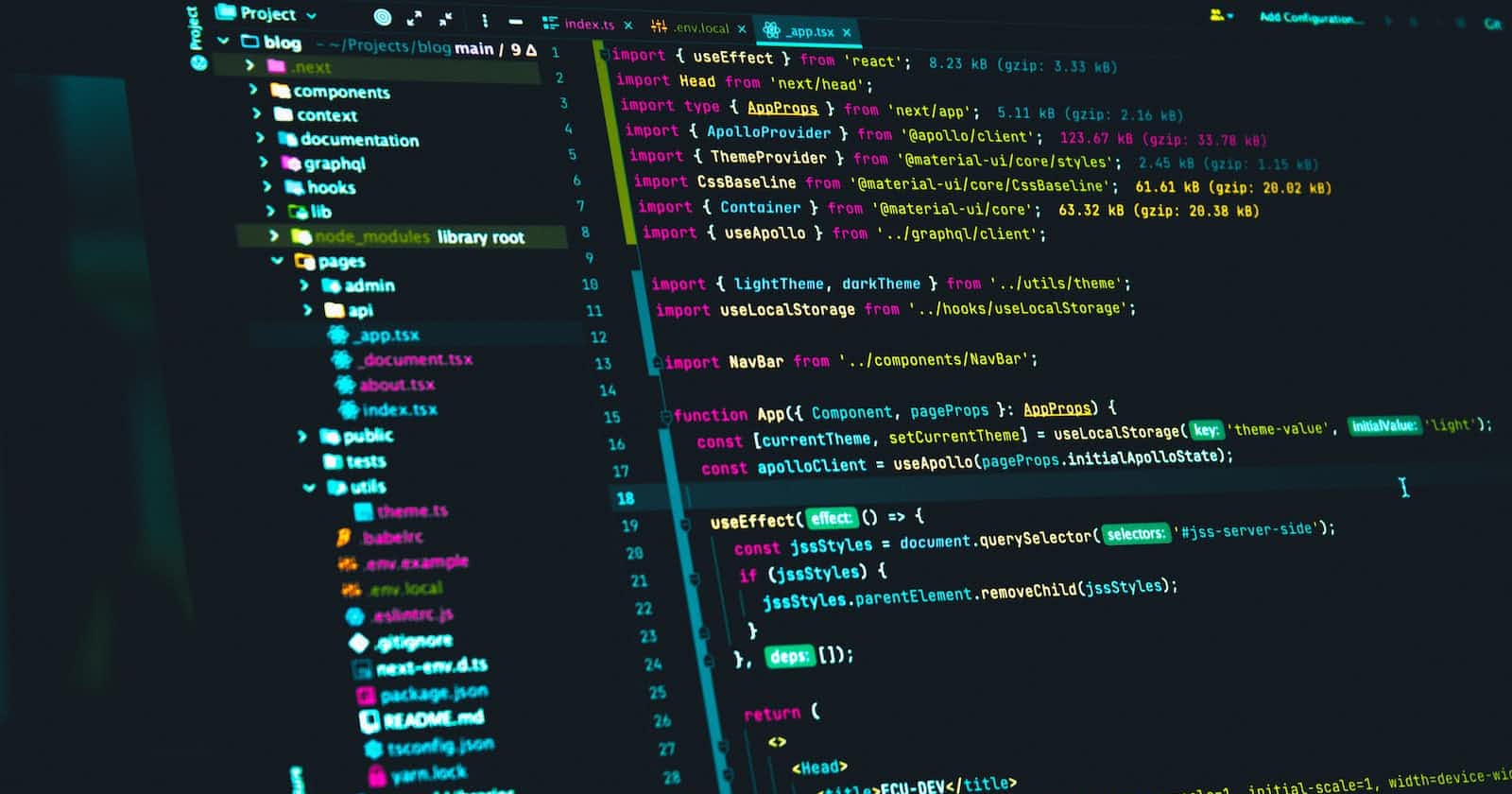
Photo by Juanjo Jaramillo on Unsplash
"Mastering the Art of Clean Code: Building Bug-Free and Scalable Python Applications"
🐍💻 As I immerse myself in the world of Python programming, I've come to understand the significance of writing code that's free of errors and the art of troubleshooting. 🚀
✨ When it comes to Python development, I firmly believe that the journey to clean and bug-free code begins right from the outset. It's not just a best practice; it's a fundamental principle that I uphold in every project.
💡 Clean code acts as my guiding light, helping me craft software that's not only reliable but also capable of scaling effortlessly. It's the secret ingredient that empowers me to build applications that can adapt and grow seamlessly.
🐞 We're all too familiar with the frustration of debugging tangled code and hunting down elusive bugs. By giving priority to clean code, I aim to minimize these challenges. It's all about setting the stage for smoother development and fewer headaches in the long run.
🌟 So, whether I'm creating new features, optimizing performance, or troubleshooting the occasional bug, I'm dedicated to the journey of clean coding. It's my way of ensuring that every line of code I write serves as a solid building block for the future.
#Version 1: Clean Code
class TaskList:
def __init__(self):
self.tasks = []
def add_task(self, task):
self.tasks.append(task)
def remove_task(self, task):
if task in self.tasks:
self.tasks.remove(task)
else:
print(f"Task '{task}' not found.")
def display_tasks(self):
if self.tasks:
print("Tasks:")
for i, task in enumerate(self.tasks, start=1):
print(f"{i}. {task}")
else:
print("No tasks to display.")
def main():
task_list = TaskList()
while True:
print("\nOptions:")
print("1. Add Task")
print("2. Remove Task")
print("3. Display Tasks")
print("4. Quit")
choice = input("Enter your choice: ")
if choice == "1":
task = input("Enter a task: ")
task_list.add_task(task)
elif choice == "2":
task = input("Enter a task to remove: ")
task_list.remove_task(task)
elif choice == "3":
task_list.display_tasks()
elif choice == "4":
print("Exiting program.")
break
else:
print("Invalid choice. Please try again.")
if __name__ == "__main__":
main()
#Bug-Infested Code
tasks = []
def add_task(task):
global tasks
tasks.append(task)
def remove_task(task):
global tasks
tasks.remove(task)
def display_tasks():
global tasks
print("Tasks:")
for i, task in enumerate(tasks):
print(f"{i + 1}. {task}")
while True:
print("\nOptions:")
print("1. Add Task")
print("2. Remove Task")
print("3. Display Tasks")
print("4. Quit")
choice = input("Enter your choice: ")
if choice == "1":
task = input("Enter a task: ")
add_task(task)
elif choice == "2":
task = input("Enter a task to remove: ")
remove_task(task)
elif choice == "3":
display_tasks()
elif choice == "4":
print("Exiting program.")
break
else:
print("Invalid choice. Please try again.")
Version 1: Clean Code
In this version, the program is structured using a class called TaskList. Here's what each part of the code does:
class TaskList: This defines a class calledTaskListto encapsulate the task list and its operations.__init__(self): Initializes an instance ofTaskListwith an empty list to store tasks.add_task(self, task): Adds a task to the list.remove_task(self, task): Removes a specified task from the list if it exists.display_tasks(self): Displays the list of tasks if there are any.
def main(): This is the main function of the program.It creates an instance of the
TaskListclass calledtask_list.It enters a loop that allows the user to perform various actions on the task list: adding tasks, removing tasks, displaying tasks, or quitting the program.
It handles user input and calls the appropriate methods of the
task_listobject.
if __name__ == "__main__":: This block ensures that themainfunction is executed only if the script is run directly, not when it's imported as a module.
Version 2: Bug-Infested Code
In this version, the program uses global variables and functions, which can lead to a lack of organization and potential bugs. Here's what each part of the code does:
tasks: This is a global list that stores the tasks.add_task(task): This global function adds a task to thetaskslist.remove_task(task): This global function attempts to remove a specified task from thetaskslist. However, it does not check whether the task exists in the list before attempting to remove it, which can lead to errors if the task is not found.display_tasks(): This global function displays the tasks in thetaskslist. It iterates through the list and prints each task with an index.The program enters an infinite loop, where the user is presented with options to add tasks, remove tasks, display tasks, or quit the program. It takes user input, calls the corresponding functions, and doesn't handle errors or invalid inputs gracefully.
In summary, the first version (Clean Code) uses a class to encapsulate the task list and its operations, providing better organization and error handling. The second version (Bug-Infested Code) uses global variables and functions without proper error checking, making it less organized and potentially prone to bugs and runtime errors.
Let's craft software that scales effortlessly! 🚀 #CleanCode #CodingJourney #BugFreeCoding 🌐🔍
